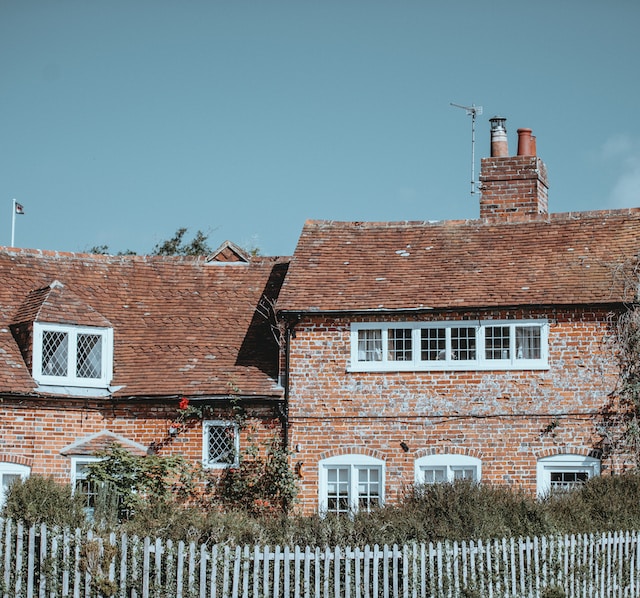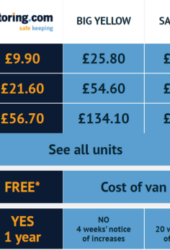Discover the different aspects of selling your house to family members for as little as £1, including potential implications for everyone involved.
Have you ever wondered if you can give your house to your child for just a pound? You’re not the only one. Many parents think about doing this, and wonder if it’s a possibility. In this article we’re going to have a look at whether it’s possible, and if it is, what it could mean for everyone involved. As with anything relating to major financial decisions, it’s complicated. Let’s take a closer look:

Exploring the Possibility
Just over one in ten young people say they will never be in a position to afford their own home. In reality, some might have their fears realised as the cost-of-living crisis combined with increasing property prices and fewer mortgage opportunities mean getting on the property ladder is impossible for many right now. It’s no wonder parents want to lend a helping hand, including passing on property to a child outright.
Unfortunately, it isn’t as simple as just giving your house away to your child or charging them a very low price. There are some specific rules and regulations that have to be followed in order to make it happen, and some potential consequences that may mean it’s not the best idea after all.
Legal and Financial Considerations
Legally, when you consider passing on your property for £1 to your son or daughter, the most important thing is to have a robust contract. It has to be as crystal clear as possible, explaining who is selling, who is buying, which property it is related to, and any specific conditions. You’ll need a very good solicitor to help you with this so that every single detail is covered.
Where it gets a little bit more complex is with taxes, and it’s the area where a lot of people are surprised when it comes to the topic of selling your house for £1. Yes, it is your house to sell for any amount you want, but the amount has no impact on the taxes you need to pay. If the value of the property is above a certain value, you may have to pay capital gains tax – regardless of how much you sell the property for.
There are caveats related to this, including potential exemptions or reliefs that apply to some situations. This is why it is important to speak to the relevant experts to ensure that you navigate the sale legally. You should also find out the cost implications before going ahead with the sale, in case they impact your decision to sell your property to your son or daughter for £1.
Alternatives To Selling Your Property To Your Son Or Daughter For £1
It is important to consider the alternatives to selling your property to your son or daughter for £1 before making any life-changing decisions. There are various alternatives to doing this, including:
- Gift the property instead of selling it, although there could still be tax implications.
- Give your child partial ownership of the property – ideal if you want to remain living in the property.
- Give the property to your child in your will (inheritance tax might still apply).
- Consider equity release, which can be risky but it can be right for some families.
- Rent the property to your child at a reduced cost which provides them with accommodation whilst you retain ownership of the house.
Family Implications
Unfortunately selling your property to a family member for a £1 can have implications across the wider family unit. Other children, relatives and spouses may not agree with your decision. You might accidentally cause arguments and tension without meaning to. For this reason, communication is so important before you make any big decisions.
Of course, you need to research all the legal elements, but you need to put just as much energy into speaking to your family too. Only by doing your research into all aspects of life impacted by this kind of decision can you go into it with your eyes open.
The Key Pros And Cons Of Selling Your House To Your Child For £1
Pros:
- Helping your child – you’re helping your child get on the property ladder, which will change their life for the better forever.
- Reducing your estate – inheritance tax will be less because your estate will be worth less when you eventually pass away.
- Keeping assets in the family – the property will stay in your family, which is important if the property is particularly meaningful to you.
- Flexible terms – the contract can be worked around your needs, so you can stay living in it for the rest of your life.
Cons:
- Tax – there are likely to be tax implications, particularly with high-value properties.
- Family tension – it might cause tension in the family, and irreparable hurt.
- No control or reduced control – once you hand the property over you don’t control your own living arrangements. This can be unsettling and challenging for some people.
- Property risk – you could live to see the property needing to be sold in future if the child you sell it to goes through financial difficulties, which may cause future disagreement between you.
Can You Sell Your House To Your Son For £1? Maybe, But Do Your Research First
Ultimately, there is no one-size-fits-all answer to this question. It is a decision that is not to be taken likely, and one that depends heavily on your individual financial situation, and the dynamics of your family. Before you make any decision you need to consider all of your options seriously.
Most importantly, do consult a professional for more information. Solicitors, tax advisors and financial advisors are invaluable when it comes to huge life decisions like this. With expert advice you will be much better equipped to make the right choice for yourself, your finances and your whole family.




